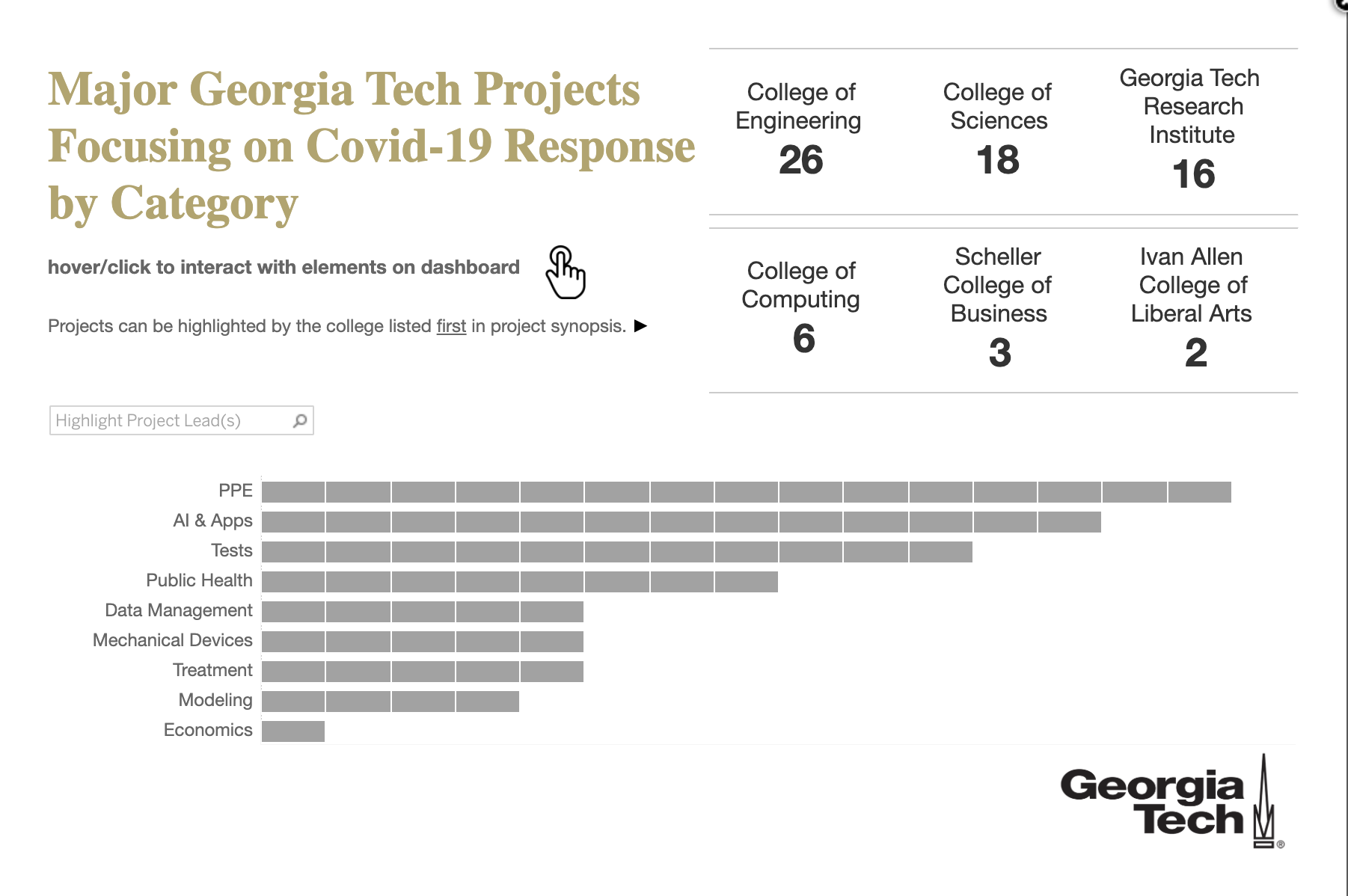Welcome to Georgia Tech Research Projects
This site is designed to provide a centralized location for all projects inside of the Georgia Tech community related to the Covid-19 response. This site allows users to filter and sort through the database and glean pertinent information about projects of interest. If perhaps you are looking to collaborate with others doing research in a similar or mutually beneficial area of research, start here as this site is designed to promote cross-campus collaboration.



